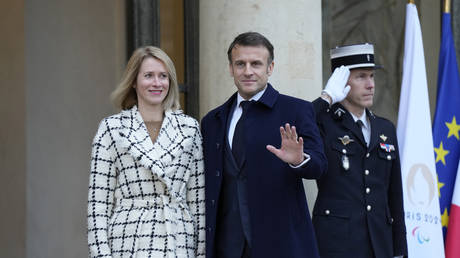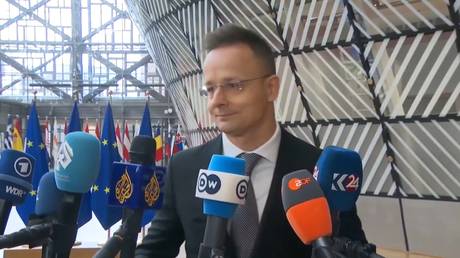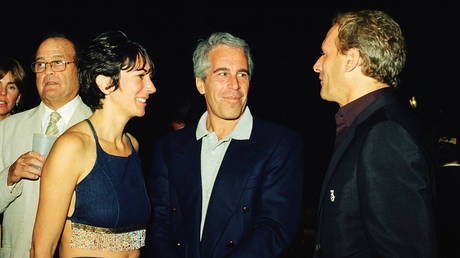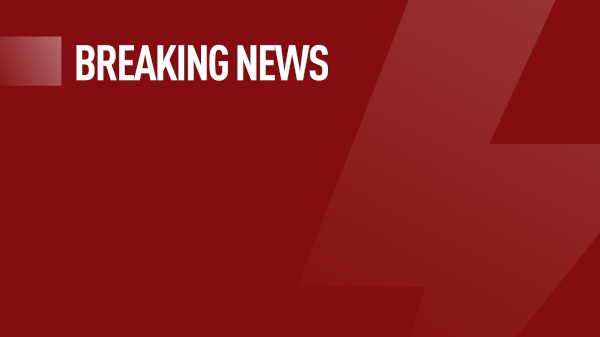
Estonia has already picked a side, PM Kallas told the parliament
Estonian PM Kaja Kallas on Wednesday refused to offer guarantees to the parliament that she would not send the Baltic country’s ground forces to aid Kiev.
Only Estonia and Lithuania had shown any enthusiasm for the idea of sending soldiers to Ukraine, after French President Emmanuel Macron argued at the end of February that all options ought to be considered to stop Russia from winning.
During the question time on Wednesday, some Estonian MPs asked Kallas to guarantee that the Estonian Defense Forces would not be deployed to Ukraine.
“I do not make such promises, because circumstances may change,” she replied. “According to your interpretation, it seems that interference could be [defined as]anything. Our military assistance to Ukraine could also be regarded by Russia as interference.”
“We have clearly chosen a side here, and this side is Ukraine, because Russia is a direct threat to us,” Kallas added.
She told the MPs that Tallinn intended to help train Ukrainian troops, not send its own soldiers to the battlefield, chalking it up to a semantic confusion.
The former Baltic republic of the Soviet Union joined the US-led military bloc in 2004, alongside Bulgaria, Latvia, Lithuania, Romania, Slovakia and Slovenia.
Estonia has a force of about 4,200 active-duty troops, which can theoretically be expanded into a wartime army of 43,000. By comparison, Ukraine suffered 125,000 casualties during the six months of its counteroffensive in 2023, according to Russian estimates. The government in Kiev has hidden or downplayed its losses, but President Vladimir Zelensky said in December that 500,000 more troops were needed at the front.
Macron’s ground troops idea may have been motivated by a series of grim battlefield reports, the French outlet Marianne reported last week. One of the classified documents noted that many Westerners “wearing civilian clothes” were already acting as instructors or advisers in Kiev, and suggested freeing up Ukrainians for frontline duty by having barely disguised NATO personnel take over rear area duties.
Russian Foreign Ministry spokeswoman Maria Zakharova suggested on Wednesday that all the talk about sending troops to Ukraine was serving to mask the real agenda of some NATO members, which was to “partition what they see as the remnants of Ukraine.”




